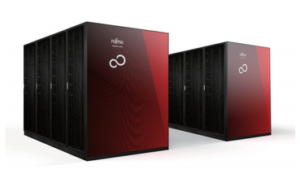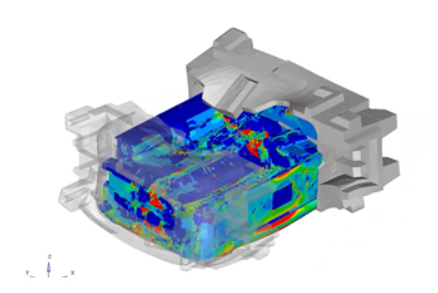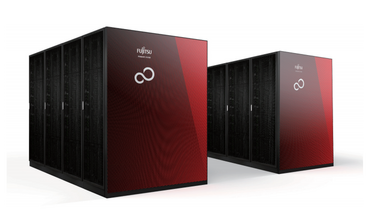
Fujitsu PRIMEHPC FX 1000
Technology from the world’s No. 1 supercomputer, Fugaku, located at the Riken Center for Computational Science in Japan, is making its way into the commercial sphere. Fujitsu Ltd. today announced that Canon, Inc., has ordered a Fujitsu PRIMEHPC FX1000 unit, expected to achieve theoretical computational performance of 648.8 teraflops (TFLOPS).
Intended to support Canon’s “no-prototype” product development initiative, “delivering enhanced capabilities and scope of applicability of analysis in Canon’s product development process,” the system is scheduled to begin operations in the first half of 2021.
Fugaku, powered by Fujitsu’s 48-core A64FX SoC, is the first ARM-based system took the top spot on the Top500 ranking, announced in June, of the world’s most powerful systems. The system, which has 158,976 nodes, blew through the exascale (a billion billion calculations per second) milestone in single precision calculations, often used in machine learning and AI applications. On the HPL-AI benchmark, designed to measure HPC performance on machine/deep learning workloads, Fugaku registered peak performance of 1.45 exaflops, according to Jack Dongarra, Distinguished Professor of Computer Science at the University of Tennessee, who helped create the TOP500 list in 1993.
Canon’s design initiative applies to such products as office multifunction devices and other types of printers, cameras, and semiconductor lithography equipment. Canon is leveraging 3D CAD data in analytical simulations to evaluate multiple facets of product design, including functionality and ease of manufacturing. Canon already has experience using Fujitsu Supercomputer PRIMEHPC FX10 and PRIMEHPC FX100 systems.
The new system on order consists of a PRIMEHPC FX1000 with 192 nodes, delivering expected theoretical performance of 648.8 TFLOPS. Fujitsu said it will also deploy Fujitsu Server PRIMERGY systems and Fujitsu Storage ETERNUS systems as peripheral devices.

Inkjet printer drop impact simulation (source: Canon)
“As an important part of Canon’s product development cycle, this system will enable larger scale analyses and simulations in impact analysis experiments evaluating damage to or deformation of a potential product when dropped, including simulations with over 100 million elements, a challenge for previous systems to handle,” Fujitsu said in its announcement. “The new system will also support airflow analysis and electromagnetic wave analysis.”




